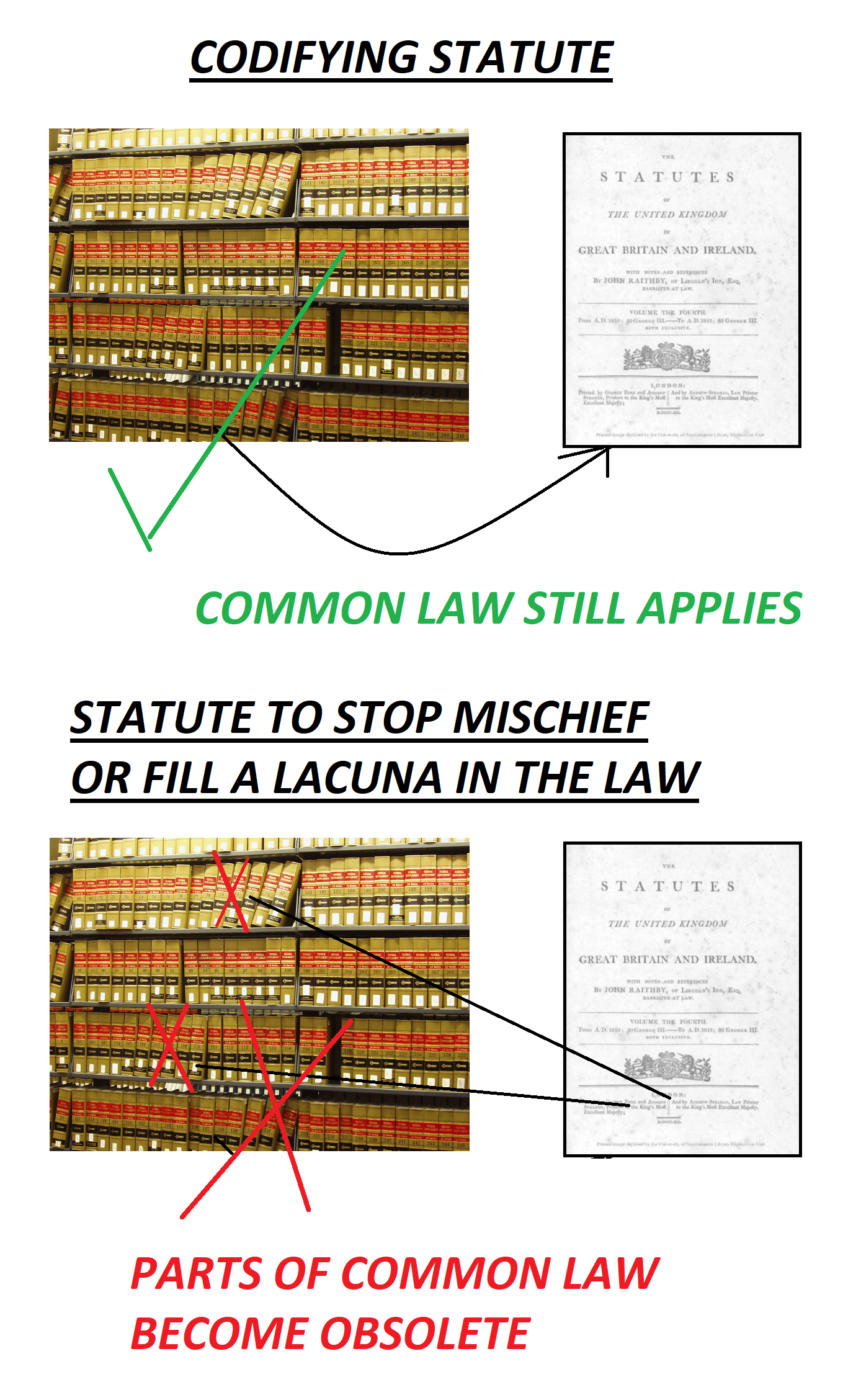R (Rottman) v Comr of Police of the Metropolis [2002] UKHL 20; [2002] 2 AC 692
Citation:R (Rottman) v Comr of Police of the Metropolis [2002] UKHL 20; [2002] 2 AC 692
Rule of thumb 1:If a new statute is introduced is the common law in that area obsolete? No, the general rule is that the 2 continue to act in conjunction with each other, but if the statute clearly contradicts the common law then the common law can be declared to be obsolete.
Rule of thumb 2:If the Police have a warrant & in the reasonable course of enforcing this come across further documents giving reasonable reasonable suspicion of other criminal offences, can they take & retain this information? Yes, as long as it was inadvertently comes across within the confines of the original warrant.
Background facts:
The basic facts were that Rottman had an extradition warrant. In the course of enforcing this, the Police obtained documents giving reasonable suspicion of other crimes.
Parties argued
Rottman argued that these documents were completely irrelevant to the original warrant & so the Police were not entitled to take or rely upon this information; the Police argued that these were obtained within the confines of the original warrant, so under the common law they were entitled to take, retain, and rely upon this information.
Judgment
The Court upheld the arguments of the Police. The Court affirmed that the statute was not expressly clear either way, and in these circumstances the common law position applied, thereby affirming that the Police were legally allowed to take, retain, and rely upon this information they obtained in the reasonable course of their warrant.

Ratio-decidendi:
‘It is a well-established principle that a rule of the common law is not extinguished by a statute unless the statute makes this clear by express provision or by clear implication’, para 75 per Lord Hutton
Warning: This is not professional legal advice. This is not professional legal education advice. Please obtain professional guidance before embarking on any legal course of action. This is just an interpretation of a Judgment by persons of legal insight & varying levels of legal specialism, experience & expertise. Please read the Judgment yourself and form your own interpretation of it with professional assistance.

